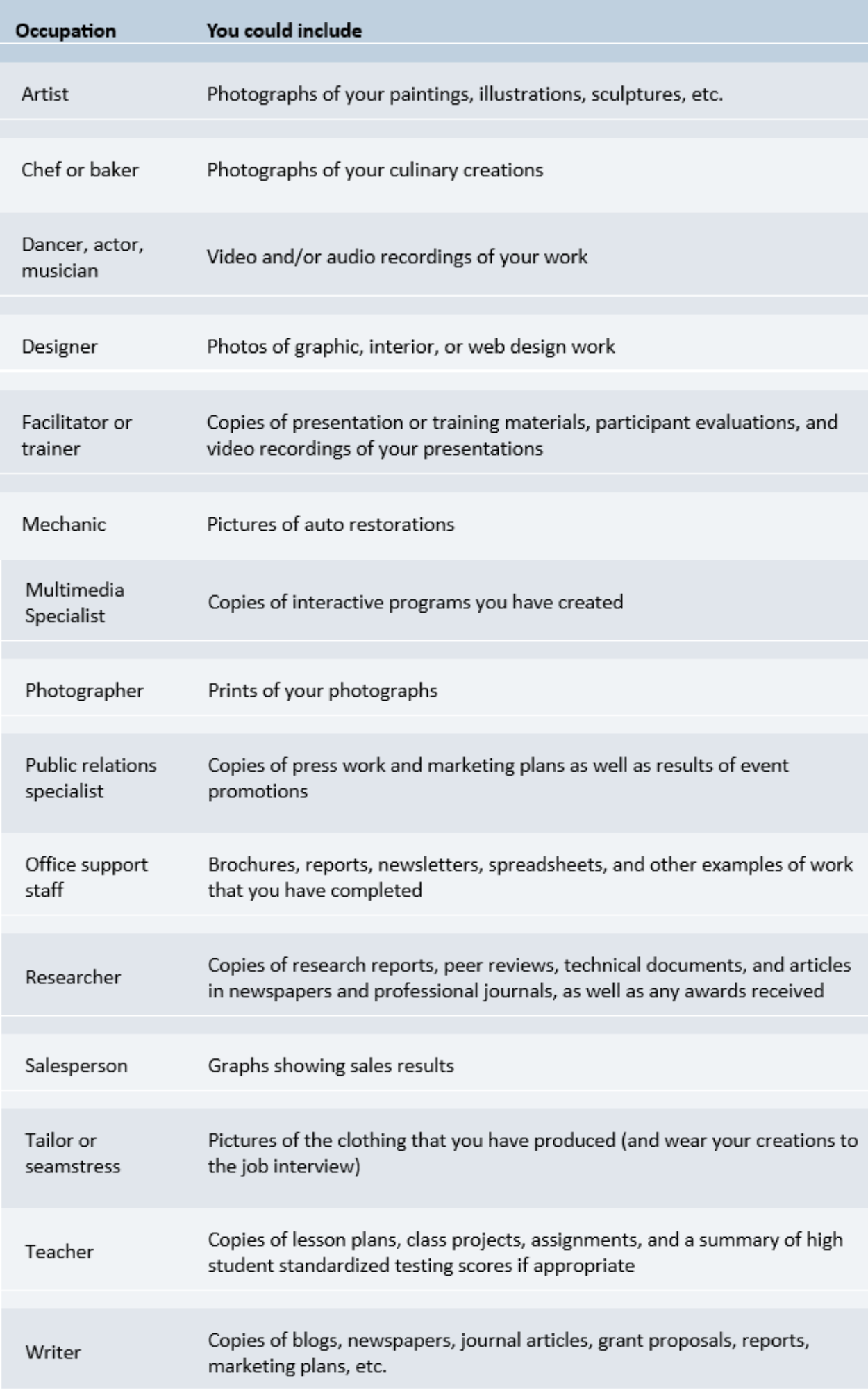11 Compelling Reasons to Create a Career Portfolio
A traditional resume highlighting your awesomeness is mandatory when looking for a job or changing careers. But depending on your situation, developing a career portfolio in addition to providing your resume might tip the scales in your favor.
Why both? The resume and career portfolio have different purposes and unique benefits.
A resume highlights your work experiences, accomplishments, skills, and education, and a career portfolio is a more comprehensive collection of evidence showcasing your achievements, skills, and abilities.
Here are some benefits of having a career portfolio:
1. Professional Mission Statement: WHY you are drawn to your work is an important part of your professional brand and mission statement. Employers will most likely be drawn first to your WHY and then want to know your WHAT and HOW. Your professional brand is also how someone describes you when you are not in the room. Don’t leave this to chance - be sure to clarify who you are, what you stand for, and how you will contribute.
2. Your resume and/or professional bio
3. A list of accomplishments demonstrating the value you’ve provided in the past will give the hiring manager a chance to dream about the amazing work you will do for them.
4. Awards, honors, certificates, military experience, and special acknowledgments.
5. Professional development activities, including memberships, conferences, and training programs you’ve led or participated in.
6. Showcase your skills: You can provide examples of your work and accomplishments by including special projects, presentations, certifications, and other projects that shine a spotlight on your expertise. This level of detail goes beyond what your resume can convey and offers a more comprehensive view of your capabilities.
7. In-depth storytelling: You can tell a more compelling story about your career journey and achievements, provide context for your projects, and highlight the challenges you faced, the strategies you used, and the results you achieved.
8. Demonstrate growth and development: Career portfolios can include work samples from different career stages, showing how you've grown and improved over time. This can be particularly relevant for candidates transitioning to new roles or industries, as it highlights transferable skills, resilience, and adaptability.
9. Tailor for specific opportunities: While a resume is generally a standardized document with a few strategic edits, your career portfolio can be customized for specific opportunities or industries. You can curate relevant pieces of work that align with the requirements of the job you are applying for.
10. Leadership, volunteer, and community activities: Employers want to hire someone they’ll like being around eight hours a day. Sharing the pro bono work you have been involved in will add another dimension to who you are and what’s important to you.
11. Kudos, praise, and testimonials: Let colleagues, customers, and managers sing your praises by including copies of emails, performance reviews, and comments you’ve received.
During the interview, your career portfolio provides another opportunity to show and tell your prospective employer what you have done.
Online portfolios
You can curate paper portfolios, but employers often want the convenience of viewing the career portfolio online.
Include your career portfolio's web address in all job search communication. Link to your online portfolio if you participate in online networking.
Research your options— many free online services allow you to get up and running quickly with limited design skills. The right solution depends on your needs, time, budget, and web skills.
Getting started
Start by creating an outline. Make a list of your skills, knowledge, and experience. This will help you categorize your work. The type of work you include will depend on your occupation and industry. Here are some examples from a website sponsored by the U.S. Department of Labor:
In summary, a career portfolio complements your resume by providing a deeper and more detailed representation of your skills, accomplishments, and expertise. It allows you to stand out from other candidates by providing a more holistic view of your qualifications, which can be particularly beneficial in competitive job markets or when seeking roles that require a strong demonstration of skills.
Need help writing an attention-getting resume and putting a career portfolio together? Talk with a Life Working® Job Search, Interview, and Resume Coach. If you need advice about career choices or resumes, check out Life Working® career coaching services, resumes & writing services, and schedule your free 30-minute consultation.

